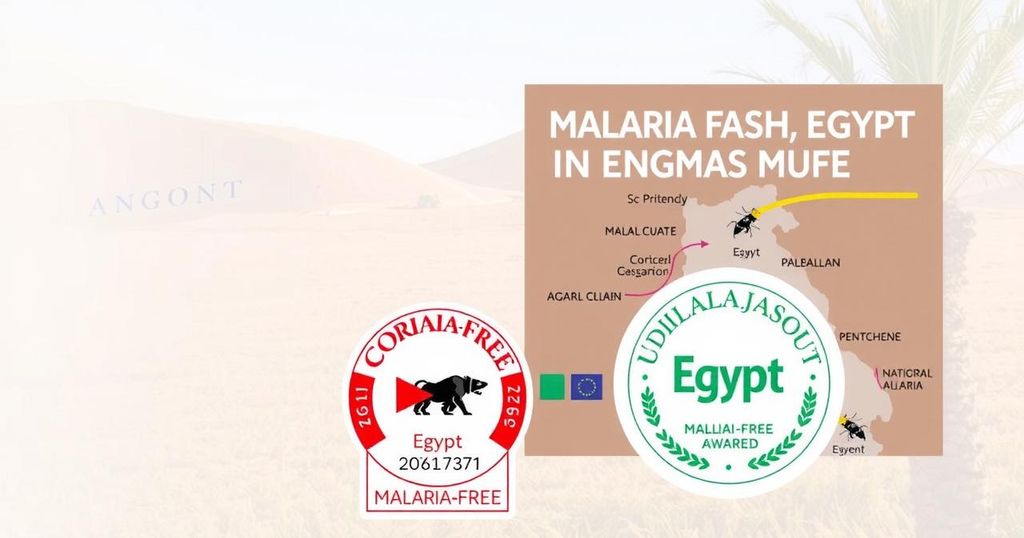Egypt Achieves Historic Malaria-Free Certification from WHO
Egypt has been certified malaria-free by the WHO on October 20, 2024, marking a historic public health milestone following decades of dedicated efforts. The country now joins a select group of nations recognized for achieving this status. The success is credited to a robust health system, community engagement, and international collaboration, paving the way for similar efforts in other countries.
On October 20, 2024, the World Health Organization (WHO) officially certified Egypt as ‘malaria-free,’ a remarkable public health achievement for a nation of over 100 million people. This milestone is the culmination of nearly a century of dedicated efforts led by both the Egyptian government and its citizens to eradicate malaria, a disease that has long been part of the country’s history. Dr. Tedros Adhanom Ghebreyesus, WHO’s Director-General, highlighted the importance of this achievement for Egypt and expressed hope that it serves as an inspiration to other nations in the region.
As one of the few countries in the WHO Eastern Mediterranean Region to attain this status, Egypt joins the United Arab Emirates and Morocco, becoming the first to receive the malaria-free certification since 2010. With 44 countries and one territory having achieved this distinction globally, Egypt’s accomplishment is particularly significant given its historical battle against malaria, which has persisted since ancient times.
Egypt’s path to malaria elimination involved extensive measures over decades, starting in the 1920s to minimize human-mosquito interactions. The designation of malaria as a notifiable disease in 1930 marked a critical point in the national response efforts, which included establishing control stations for diagnosis and treatment. Despite experiencing periodic outbreaks, Egypt’s strategic interventions proved effective, enabling it to manage and eventually eliminate the disease within its borders.
Health professionals in Egypt are now equipped to provide free malaria diagnosis and treatment to all residents, irrespective of their legal status. Moreover, collaborative efforts with neighboring countries are instrumental in preventing malaria from reestablishing itself, allowing Egypt to maintain its malaria-free status.
In the wake of this certification, Deputy Prime Minister Dr. Khaled Abdel Ghaffar emphasized the importance of continued vigilance to sustain the achievement through rigorous health systems and community engagement. The journey towards this milestone underscores the commitment of both the Egyptian government and its citizens to uphold public health standards, setting a global precedent for malaria eradication efforts.
Malaria has existed in Egypt for thousands of years, with traces evident in ancient Egyptian mummies. The country has faced significant public health challenges related to malaria, which peaked during various historical events such as World War II and the construction of the Aswan Dam. The Egyptian government initiated efforts to combat malaria beginning in the 1920s. Comprehensive strategies, investments in health systems, and community involvement played vital roles in steadily reducing the number of malaria cases in the country. The WHO certification process emphasizes a sustained three-year absence of indigenous transmission, which Egypt successfully achieved.
Egypt’s recent certification as malaria-free by the WHO represents a significant public health achievement, reflecting nearly a century of dedicated efforts to eradicate the disease. This milestone not only safeguards the health of Egyptians but also serves as a beacon of hope for other nations struggling with malaria. The sustained commitment to surveillance, diagnosis, and treatment will be crucial as Egypt embarks on the next phase of its public health journey. The collective efforts of the Egyptian people and government exemplify how strategic health initiatives can lead to substantial success against endemic diseases.
Original Source: www.emro.who.int




Post Comment